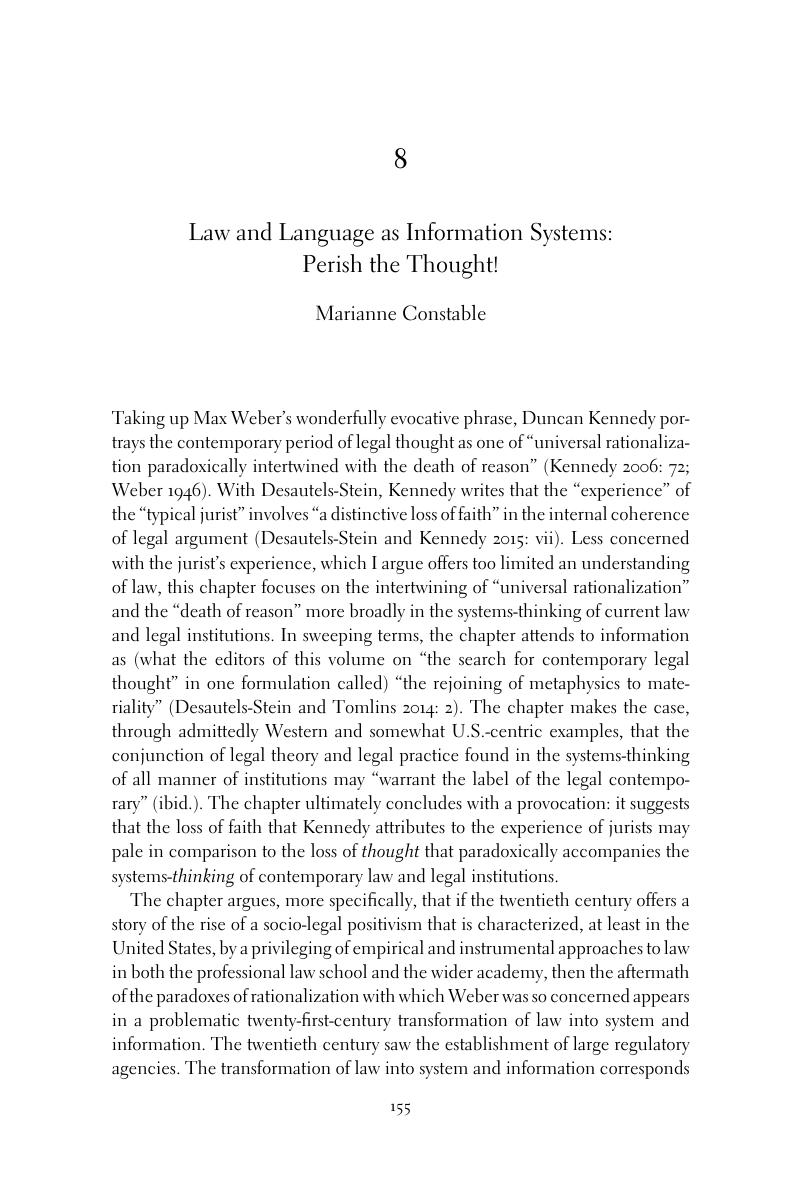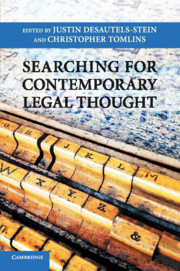Book contents
- Searching for Contemporary Legal Thought
- Reviews
- Searching for Contemporary Legal Thought
- Copyright page
- Contents
- Contributors
- Acknowledgments
- Introduction: Searching for Contemporary Legal Thought: History, Image, and Structure
- Part I Histories of the Legal Contemporary
- 1 Of Origin: Toward a History of Contemporary Legal Thought
- 2 Who Are We?: Persona, Office, Suspicion, and Critique
- 3 On the Hinges of History: For a Relational Legal Historiography
- 4 Contemporary Legal Genealogies
- 5 Legal Theory among the Ruins
- 6 Institutional Conditions of Contemporary Legal Thought
- 7 “Legal Theory,” Strategies of Learned Production, and the Relatively Weak Autonomy of the Subfield of Learned Law
- 8 Law and Language as Information Systems: Perish the Thought!
- 9 Our Geological Contemporary
- Part II Images of the Legal Contemporary?
- Part III Structures of the Legal Contemporary
- Index
- References
8 - Law and Language as Information Systems: Perish the Thought!
from Part I - Histories of the Legal Contemporary
Published online by Cambridge University Press: 28 December 2017
- Searching for Contemporary Legal Thought
- Reviews
- Searching for Contemporary Legal Thought
- Copyright page
- Contents
- Contributors
- Acknowledgments
- Introduction: Searching for Contemporary Legal Thought: History, Image, and Structure
- Part I Histories of the Legal Contemporary
- 1 Of Origin: Toward a History of Contemporary Legal Thought
- 2 Who Are We?: Persona, Office, Suspicion, and Critique
- 3 On the Hinges of History: For a Relational Legal Historiography
- 4 Contemporary Legal Genealogies
- 5 Legal Theory among the Ruins
- 6 Institutional Conditions of Contemporary Legal Thought
- 7 “Legal Theory,” Strategies of Learned Production, and the Relatively Weak Autonomy of the Subfield of Learned Law
- 8 Law and Language as Information Systems: Perish the Thought!
- 9 Our Geological Contemporary
- Part II Images of the Legal Contemporary?
- Part III Structures of the Legal Contemporary
- Index
- References
Summary

- Type
- Chapter
- Information
- Searching for Contemporary Legal Thought , pp. 155 - 176Publisher: Cambridge University PressPrint publication year: 2017
References
Works Cited – Chapter 8
- 1
- Cited by

